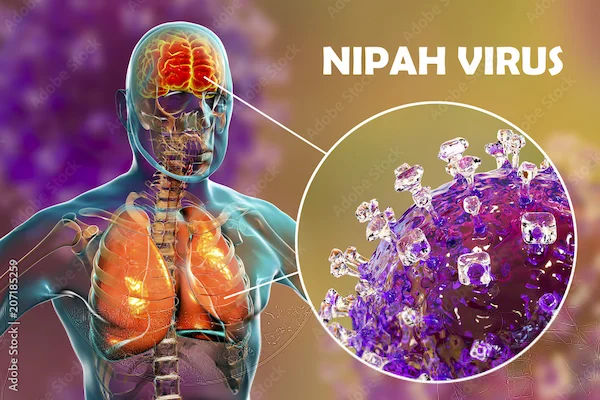Understanding Malaria and Laboratory Diagnosis
Gain a clear understanding of malaria, including its symptoms, diagnostic tests, and who should get tested. Learn about effective treatment options and essential prevention strategies to protect against this mosquito-borne disease.


Introduction
Malaria is a serious and sometimes life-threatening disease caused by parasites that are transmitted to humans through the bites of infected female Anopheles mosquitoes. It is a major health concern in tropical and subtropical regions, affecting millions of people every year. Early diagnosis and treatment are crucial to prevent severe complications.
In this article, we’ll discuss what malaria is, its symptoms, causes, and how it is diagnosed through laboratory tests. We’ll also share some practical tips for prevention and when to seek medical help.
What is Malaria?
Malaria is an infectious disease caused by Plasmodium parasites, with five species known to infect humans:
- Plasmodium falciparum (most dangerous)
- Plasmodium vivax
- Plasmodium malariae
- Plasmodium ovale
- Plasmodium knowlesi (rare)
When an infected mosquito bites a person, the parasites enter the bloodstream and travel to the liver, where they multiply. Later, they infect red blood cells, leading to symptoms like fever, chills, and fatigue.
Consult a Top General Physician for the best advice
Symptoms of Malaria
Symptoms usually appear 10–15 days after the mosquito bite but can take longer in some cases. Common signs include:
- High fever with chills and sweating
- Headache and body aches
- Fatigue and weakness
- Nausea and vomiting
- Muscle pain
- Jaundice (yellowing of skin and eyes in severe cases)
In severe malaria (often caused by P. falciparum), complications like organ failure, seizures, or coma can occur, requiring immediate medical attention.
How is Malaria Diagnosed?
Since malaria symptoms can resemble other illnesses like flu or dengue, laboratory testing is essential for accurate diagnosis. The main diagnostic methods include:
1. Microscopic Blood Smear Test (Gold Standard)
- A drop of blood is examined under a microscope to detect malaria parasites.
- Helps identify the parasite species and determine infection severity.
2. Rapid Diagnostic Tests (RDTs)
- Quick and simple blood tests that detect malaria proteins (antigens).
- Results are available in 15–20 minutes.
3. Polymerase Chain Reaction (PCR) Test
- Highly accurate but takes longer.
- Used when other tests are inconclusive.
4. Other Tests
- Complete Blood Count (CBC) – Checks for anemia or low platelets.
- Liver and Kidney Function Tests – Assess organ damage in severe cases.
Early diagnosis ensures timely treatment and prevents complications.
Get Your Health Assessed
Who Should Get Tested?
You should consider malaria testing if:
- You live in or have recently traveled to a malaria-prone area.
- You experience fever, chills, or flu-like symptoms after mosquito exposure.
- You have unexplained anemia or fatigue.
Treatment and Prevention
Managing malaria effectively requires prompt treatment and proactive prevention strategies to avoid complications and further spread.
Treatment
- Antimalarial medications (e.g., chloroquine, artemisinin-based therapy) are prescribed based on the parasite type.
- Severe cases may require hospitalization.
Prevention Tips
- Use mosquito nets (preferably insecticide-treated).
- Apply insect repellent (containing DEET or picaridin).
- Wear long-sleeved clothing in mosquito-prone areas.
- Take antimalarial prophylaxis if traveling to high-risk regions (consult a doctor).
- Eliminate stagnant water (mosquito breeding sites).
When to See a Doctor?
Seek medical help immediately if you experience:
- High fever with shivering
- Severe headache or confusion
- Difficulty breathing
- Persistent vomiting
Early treatment can save lives!
Final Thoughts
Malaria is a preventable and treatable disease, but timely diagnosis is key. If you or a loved one shows symptoms, don’t delay testing.
Consult a Top General Physician for the best advice
Consult a Top General Physician for the best advice

Dr. Mohamed Azeem
General Physician/ Internal Medicine Specialist
2 Years • MBBS,MD(Internal Medicine) CCEBDM
Karaikudi
Apollo Hospitals Karaikudi, Karaikudi

Dr. Aakash Garg
Gastroenterology/gi Medicine Specialist
12 Years • MBBS, DNB (Medicine), DrNB (Gastroentrology).
Bilaspur
Apollo Hospitals Seepat Road, Bilaspur
(125+ Patients)

Dr. Thirupathy K S
General Physician/ Internal Medicine Specialist
11 Years • MD
Karaikudi
Apollo Hospitals Karaikudi, Karaikudi
(75+ Patients)

Dr. Rajib Ghose
General Physician/ Internal Medicine Specialist
26 Years • MBBS
Kolkata
B Ghose Foundation Doctor's Chamber, Kolkata
(25+ Patients)

Dr. Rajib Ghose
General Practitioner
25 Years • MBBS
East Midnapore
VIVEKANANDA SEBA SADAN, East Midnapore
Consult a Top General Physician for the best advice

Dr. Mohamed Azeem
General Physician/ Internal Medicine Specialist
2 Years • MBBS,MD(Internal Medicine) CCEBDM
Karaikudi
Apollo Hospitals Karaikudi, Karaikudi

Dr. Aakash Garg
Gastroenterology/gi Medicine Specialist
12 Years • MBBS, DNB (Medicine), DrNB (Gastroentrology).
Bilaspur
Apollo Hospitals Seepat Road, Bilaspur
(125+ Patients)

Dr. Thirupathy K S
General Physician/ Internal Medicine Specialist
11 Years • MD
Karaikudi
Apollo Hospitals Karaikudi, Karaikudi
(75+ Patients)

Dr. Rajib Ghose
General Physician/ Internal Medicine Specialist
26 Years • MBBS
Kolkata
B Ghose Foundation Doctor's Chamber, Kolkata
(25+ Patients)

Dr. Rajib Ghose
General Practitioner
25 Years • MBBS
East Midnapore
VIVEKANANDA SEBA SADAN, East Midnapore
Get Your Health Assessed
₹240(₹600)60% off
₹870(₹2175)60% off
₹395(₹988)60% off
₹800(₹2000)60% off
₹890(₹2225)60% off





